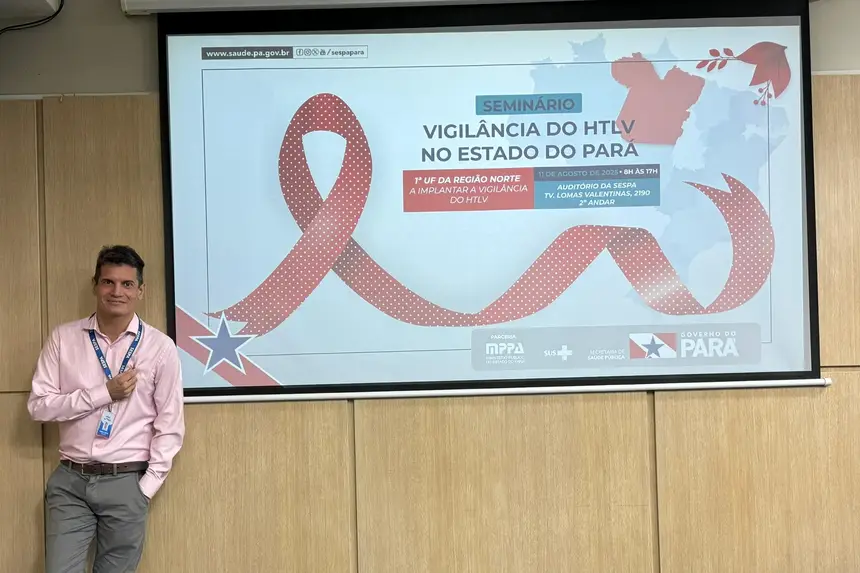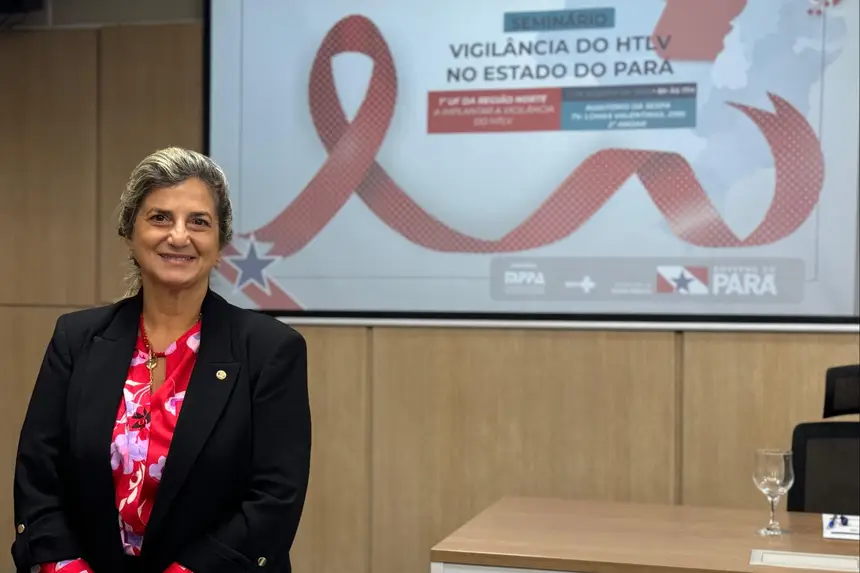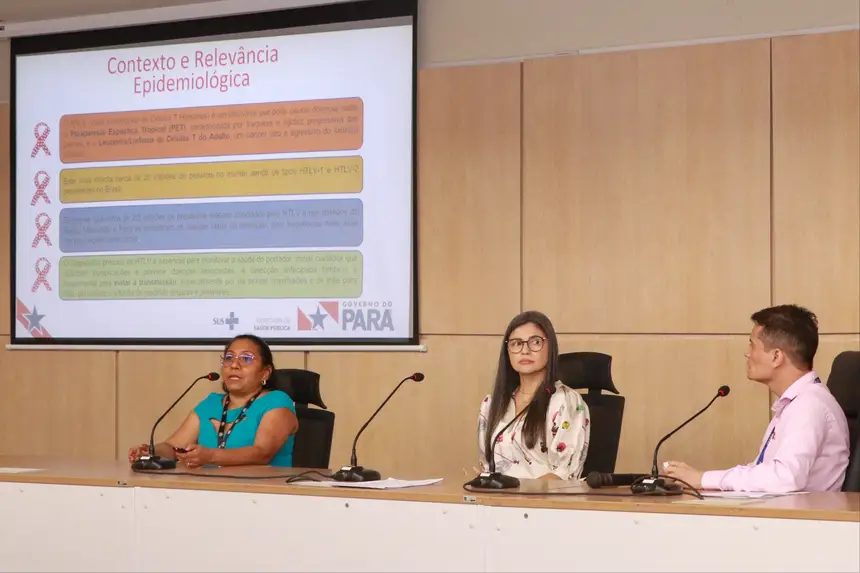Pará holds the first seminar in the North region on HTLV surveillance in pregnant women and children
Pioneering event, promoted by Sespa, marks the beginning of the implementation of infection surveillance in the State and strengthens prevention and care actions

On this Monday (11), the State Department of Public Health of Pará (Sespa) promotes the first Seminar in the North Region on HTLV Surveillance in Pregnant Women and Children, at the institution's auditorium in Belém. The meeting, held in partnership with the Public Ministry of the State of Pará (MPPA), takes place from 8 am to 5 pm and brings together specialists, managers, and representatives of social movements to exchange experiences and define prevention, diagnosis, and care strategies.
The event marks an important step for public health in Pará. The State will be the first in the North region and the eighth in Brazil to implement a surveillance system for the Human T-Lymphotropic Virus (HTLV). The main goal is to create a specific care line for pregnant women, parturients, postpartum women, and children exposed to the virus, with a special focus on preventing mother-to-child transmission.
The Deputy Secretary of Health Policy Management at Sespa, Heloísa Guimarães, emphasized that this initiative is part of a broader government commitment. “We are building a public policy capable of giving visibility to a problem that affects thousands of people in Brazil but is still little known. Our goal is to ensure that every pregnant woman and every child exposed to the virus receive comprehensive care, from diagnosis to follow-up. And for that, we need to work together, strengthen the care network, and ensure that no one goes without care,” she stated.
The seminar's program includes lectures and discussion circles on the situation of HTLV in Brazil and Pará, diagnostic methods, prevention strategies, and guidelines for the care of pregnant women and newborns. The aim is to train health professionals and mobilize civil society to form a comprehensive care network. The target audience includes doctors, nurses, pharmacists, and other professionals working in Primary Care and health surveillance.
At the opening table, representatives from Sespa, Federal University of Pará (UFPA), Council of Municipal Health Secretaries of Pará (Cosems-PA), Brazilian Society of Infectology, Public Ministry, NGO Art for Life, and other partner institutions were present.
For prosecutor Elaine Castelo Branco, from MPPA, the partnership with Sespa is essential. “The Public Ministry is hand in hand with Sespa, actively participating in committees and congratulating Pará for this initiative. If the planned changes are implemented, we will be the eighth State in Brazil to adopt this innovation,” she said.
Before discussing the risks of the virus, the coordinator of IST/Aids at Sespa, Marcos Santos, reminded that surveillance is essential for early diagnosis and prompt treatment. This increases the chances of avoiding complications and drastically reduces the possibility of transmission. “HTLV is a retrovirus of the same family as HIV, but with a distinct evolution. The infection, when transmitted from mother to child, can lead up to 5% of children to develop leukemia in the future. Blocking this transmission means saving lives and preventing suffering,” he explained.
Representing UFPA, Antônio Carlos Valinoto highlighted that Pará is among the three states with the most cases of the disease. “We have been in this fight since the 1990s and have always felt the lack of structured follow-up for patients. Now, with this initiative, we have a real possibility of changing this story,” he emphasized.
For Rosiana Nobre Cardoso, from the Health Surveillance Directorate of Sespa, the measure is also a form of justice. “We are talking about people who were invisible. Today we take a historic step in the protection and assistance to these patients,” she stated.
What is HTLV? - The Human T-Lymphotropic Virus (HTLV) is a virus that attacks the body's defense cells. It was discovered in the 1980s and can cause serious diseases, such as a type of leukemia and neurological problems.
Transmission can occur through unprotected sexual relations, sharing contaminated syringes, and from mother to child — especially during breastfeeding. There is no cure, but early diagnosis and medical follow-up greatly reduce the risk of complications.
With the implementation of surveillance, Pará intends to increase diagnosis, improve prevention, and ensure that pregnant women, children, and other people exposed to the virus receive comprehensive follow-up.













